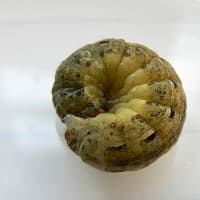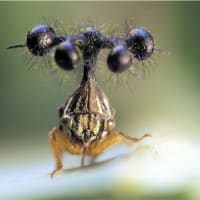THE TELOMERE EFFECTのIntroductionからもう一つ興味深い言葉を二つ取り上げます。
In 1961 the biologist Leonard Hayflick discovered that normal human cells can divide a finite number of times before they die.
...
Hayflick called this youthful phase of cell division "luxuriant growth." After a while, though, the reproducing cells in Hayflick's lab stopped in their tracks, as if they were getting tired. The longest-lasting cells managed about fifty cell divisions, although most divided far fewer times. Eventurally these tired cells reached a stage he called senescence: They were still alive but they had all stopped dividing, permanently. This is called the Hayflick limit, the natural limit that human cells have for dividing, and the stop switch happens to be telomeres that have become critically short.
人の細胞分裂に限界("Hayflick limit")があったのは知っていましたが、その名称は知りませんでした。これを発見したのがHayflick氏だったのですね。
"senescence" は文中に意味を説明しているので分かりますが、一応辞書の説明も読みます。
・Oxford English Dictionary: Loss of a cell's power of division and growth.: We have devised a functional approach to clone genes involved in the regulation of cell growth and senescence.
・Merriam-Webster's Online Dictionary: the state of being old: the process of becoming old
Senescence can be traced back to Latin senex, meaning "old." Can you guess which other English words come from senex? Senile might come to mind, as well as senior. But another one might surprise you: senate. This word for a legislative assembly dates back to ancient Rome, where the Senatus was originally a council of elders composed of the heads of patrician families. There's also the much rarer senectitude, which, like senescence, refers to the state of being old (specifically, to the final stage of the normal life span).
最新の画像[もっと見る]
-
 miner's lettuce
7ヶ月前
miner's lettuce
7ヶ月前
-
 meme
2年前
meme
2年前
-
 head calls
2年前
head calls
2年前
-
 cutworm
4年前
cutworm
4年前
-
 X-ray machine
8年前
X-ray machine
8年前
-
 hush puppies
8年前
hush puppies
8年前
-
 Things I Hate
8年前
Things I Hate
8年前
-
 fence straddling
8年前
fence straddling
8年前
-
 irrupt
10年前
irrupt
10年前
-
 ロマネスク収穫
11年前
ロマネスク収穫
11年前

















※コメント投稿者のブログIDはブログ作成者のみに通知されます